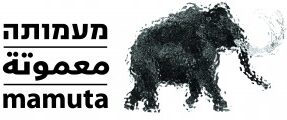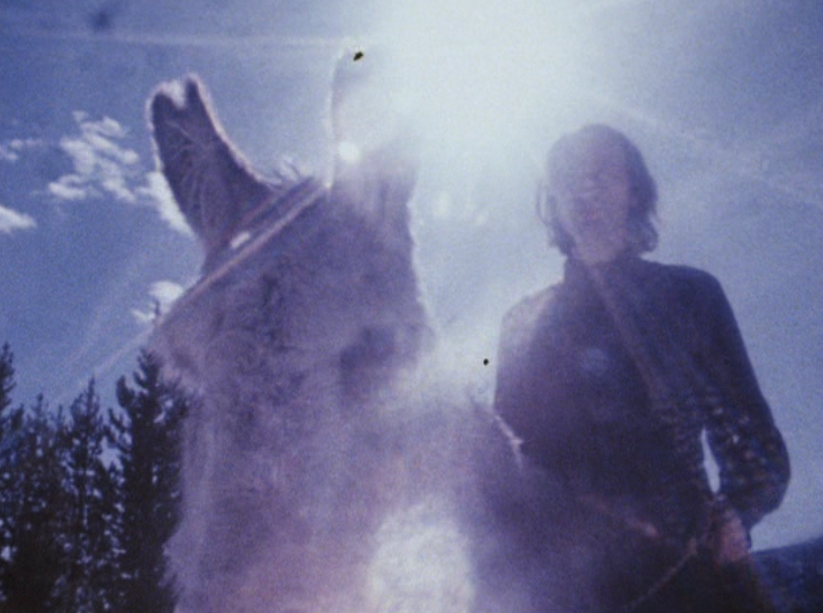Jonas Mekas
Curator: Lea Mauas, Sharon Balaban
24.04.21 - 31.12.21
The Mamuta Art Research Center for Art and the Screen-Based Arts Department, Bezalel
For Love is Like the Wind
And Love is Like the Water
Jonas Mekas, exhibition
Curators: Sharon Balaban, Lea Mauas | Assistant Curator: Shahar Ben-Nun
What’s important about the underground cinema? that it’s not important at all…It’s a very joyful occupation…joyful past time.. turn your camera on your friends , on the things you really like.. without going through painful production, raising money, and suffering… you have 3 dollars, you buy a roll of film and make film (Jonas Mekas, 1968)
The exhibition presents two of Jonas Mekas’s cinematic diaries. Lithuanian-born Mekas (1922-2019) fled his homeland at the end of WWII. During his escape he was captured and imprisoned in a German labor camp. In 1949 he made his way to New York, where he lived and created for the rest of his life. Mekas, considered the father of experimental cinema[TC1] , was also a film critic (The Village Voice, Film Journal), founder and initiator of various experimental cinema platforms (The Film-Makers’ Cooperative, Anthology Film Archives), a lecturer, poet, and activist for artistic freedom. The two works in this exhibition, created at a distance of 40 years, document the lyricism of daily life: the encounters, the streets, the change of seasons, and the beauty of time passing over us in the day-to-day. In Mekas’s works, documentation has a poetic and aesthetic purpose, and the act of filming is perceived as an act of freedom, a way of life, poetry. The title of the exhibition is taken from one of the many poems written by Mekas during the course of his life.
365 Day Project is a visual journal in which Mekas uploaded short video segments to a designated website each day of the year 2007. Each film was accompanied by a short poet. “I don’t make movies, I film,” he stated . “I have a pen, and I have a camera.” Mekas searches for the poetics of the filmed image, without grand narratives. In an age of an excess of documentation and the endless creation of videos on our cell phones, it is interesting to examine Mekas’s work on the day to day in historical perspective.
365 Day Project can be viewed in the exhibitionion space in several ways. Projected on a screen at the entrance to the exhibition is the video that was filmed on the parallel date in 2007. In the central gallery space, the entire work is screened during the opening hours of the exhibition, in a loop (about 38 hours in total). On a third screen the viewer can choose days from the project and watch them independently. This display emphasizes the playful aspect of the project and creates a dynamic and liberated experience of time. It expresses the desire to break the linear continuum of time and at the same time allows a meditative, galleristic viewing of the beauty created by the accumulation of the films.
The final exhibition space features a projection of Mekas’s film Walden from 1969. Mekas filmed, or as he put it, “celebrated what he saw,” on his Bolex, the camera he bought upon his arrival in New York in 1949. The work was commissioned by the Albright-Knox Art Gallery in Buffalo, New York, and was filmed between 1964 and 1969. The film is inspired by Henry David Thoreau’s 1854 book, Walden, in which the writer described his experiences over the course of two years living in a cabin that he built alongside Walden Pond in Massachusetts. As a writer and philosopher, Thoreau believed that in order to understand human existence and its true essential needs, one must celebrate daily life in the simplicity of nature. Demanding what he called “total mastery of one’s tools” – composition, camera movements, and editing as he filmed – Mekas tried to turn the metropolis of New York City into his “Walden,” a place where nature is present more than the typical urban sights. When asked whether this was really New York, Mekas said, “Walden is made up of bits of memories of what I wanted to see. I eliminated what I didn’t want to see.”
The exhibition And Love is Like the Water / For Love is Like the Wind is a chance for the Jerusalem public to get to know one of the most fascinating avant-garde filmmakers, following an exhibitionion of his works over the past year at Hamidrasha Gallery – Hayarkon 19 in Tel Aviv (curator: Avi Lubin).
The exhibition is the product of a collaboration between the Screen-Based Arts Department at the Bezalel Academy of Arts and Design and the Mamuta Art Research Center, following past collaborations: an international conference (“Anatomy and Autonomy of the Moving Image”) in the framework of the Jerusalem Film Festival (2010), and an exhibitionion of the artist and filmmaker Chantal Akerman (De la Mer(e) au Desert) at Mamuta (2014).
The exhibitionion program also includes an online seminar, “Dear Jonas,” featuring speakers from Israel and abroad (May 3 2021), and a closing event on the subject of the day-to-day with Dr. Danny Sharira (May 28, 2021).
The exhibitionion is held thanks to the support of the Lithuanian Culture Institute.
Thanks: Head of the Screen Based Arts department Tami Berenstein, Sebastian Mekas, Elena Keisodute, Avi Lubin.
No related events found.

